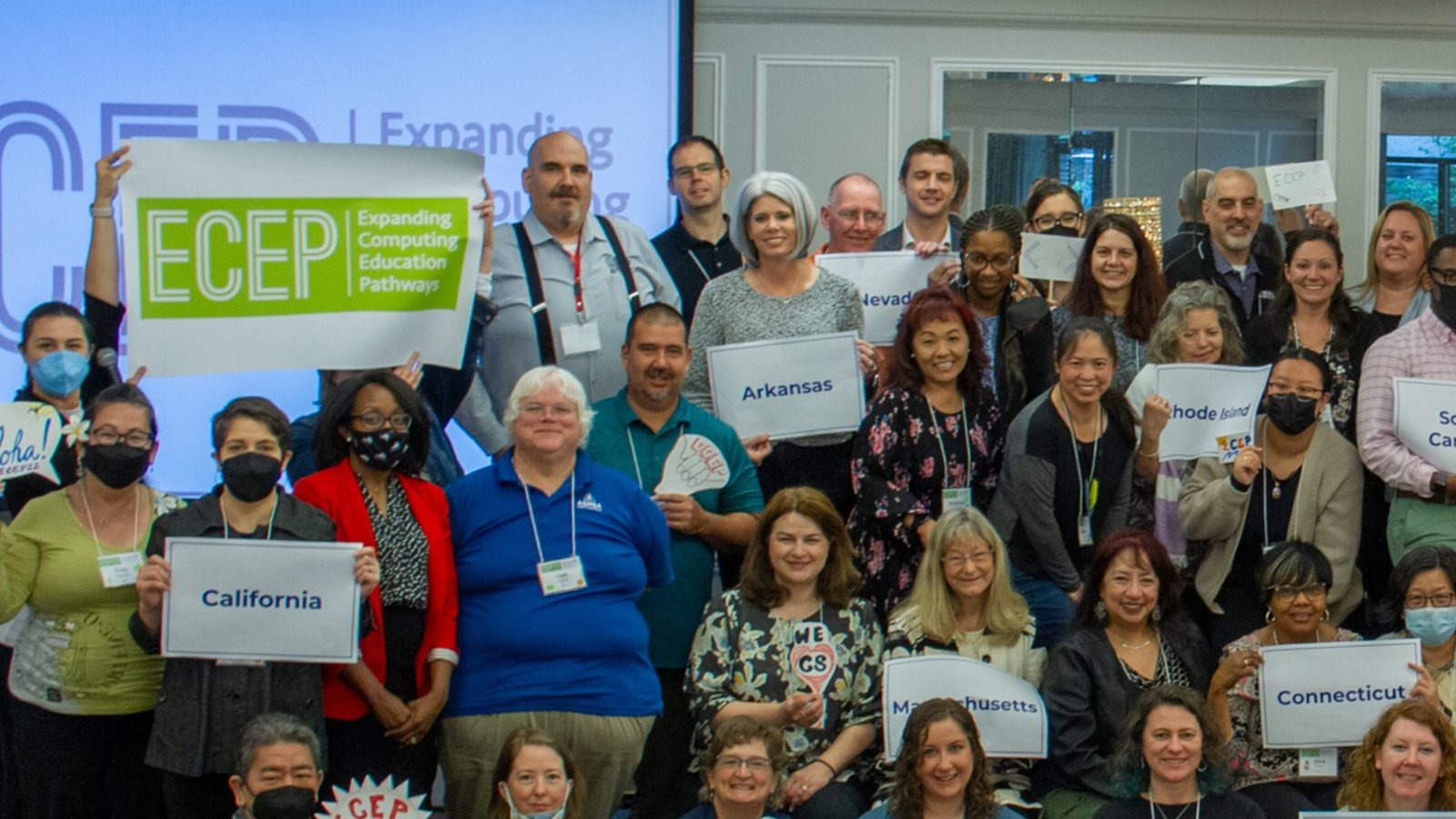

The mission of the Expanding Computing Education Pathways (ECEP) Alliance is to broaden participation in computing by identifying and addressing the policies, pathways, and practices in state education systems that are barriers to diverse student engagement. ECEP believes that improving equitable capacity for, access to, participation in, and experiences of CS education will increase the number and diversity of students in computing and computing-intensive degree pathways.
ECEP facilitates a learning community through monthly virtual meetings, seed funding for BPC interventions and research projects, coaching, and technical assistance for the creation of CS education landscape reports, state CS education summits, and other equity-explicit interventions.